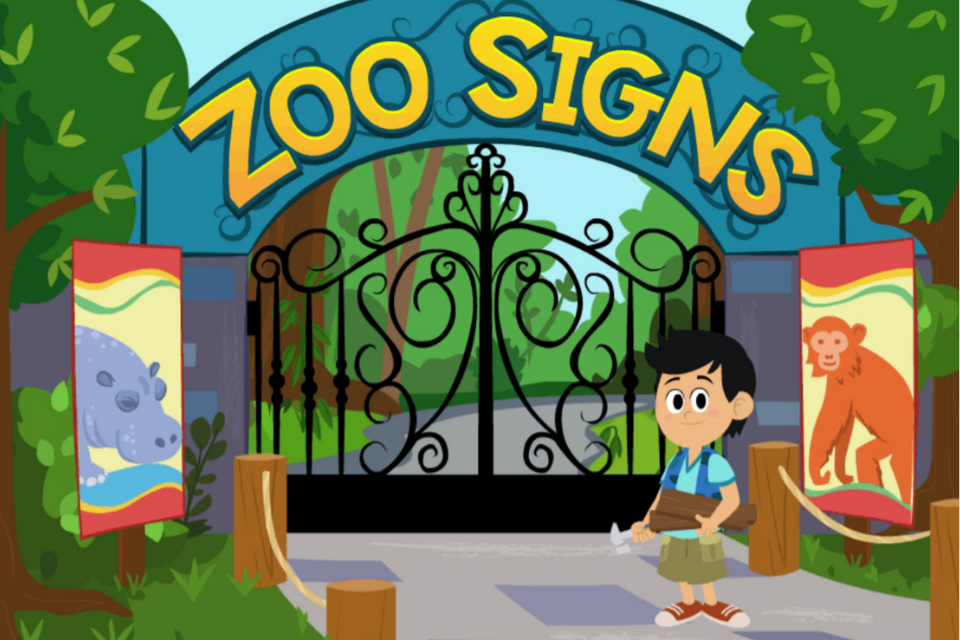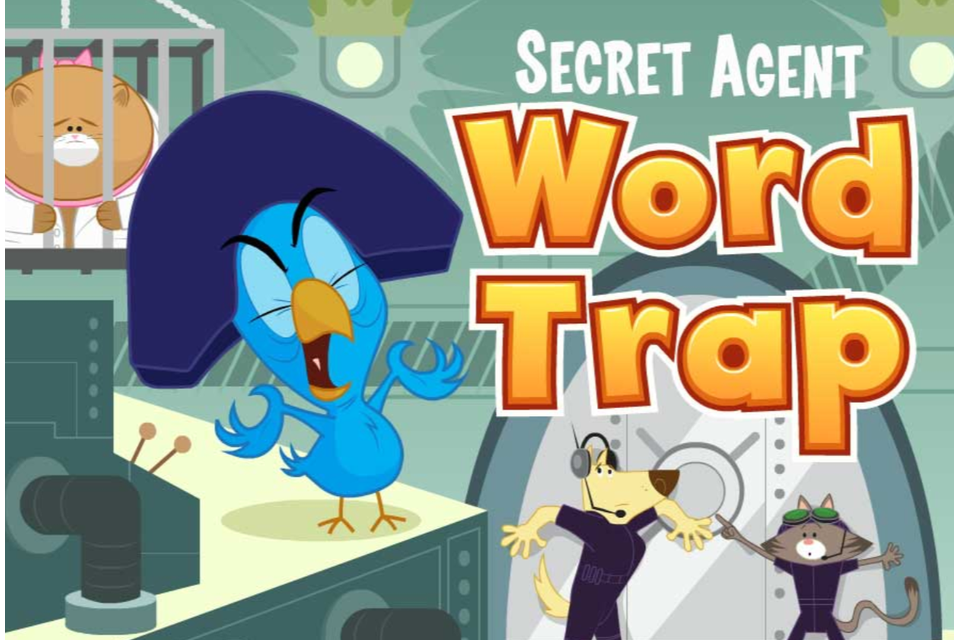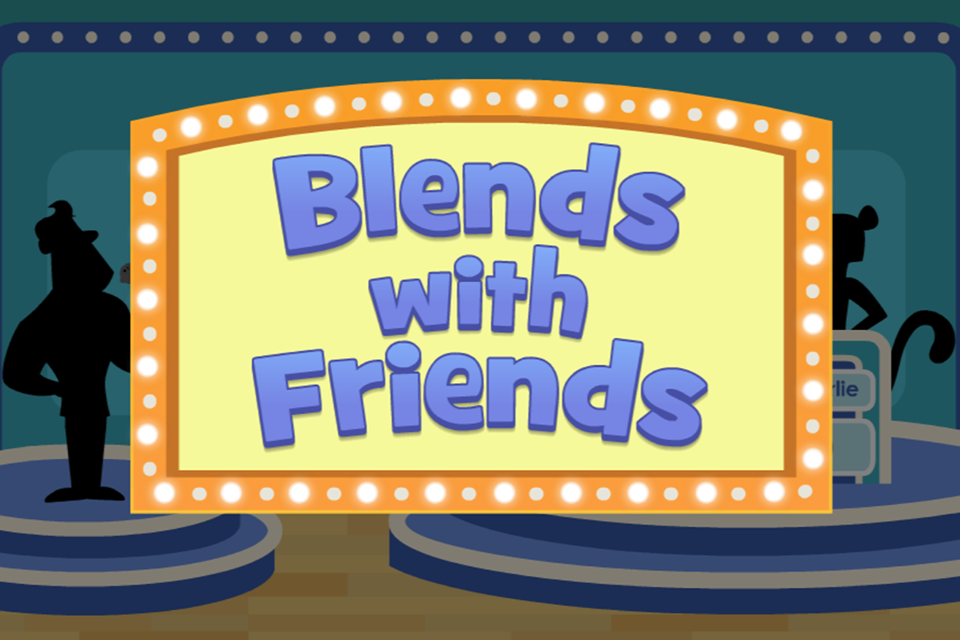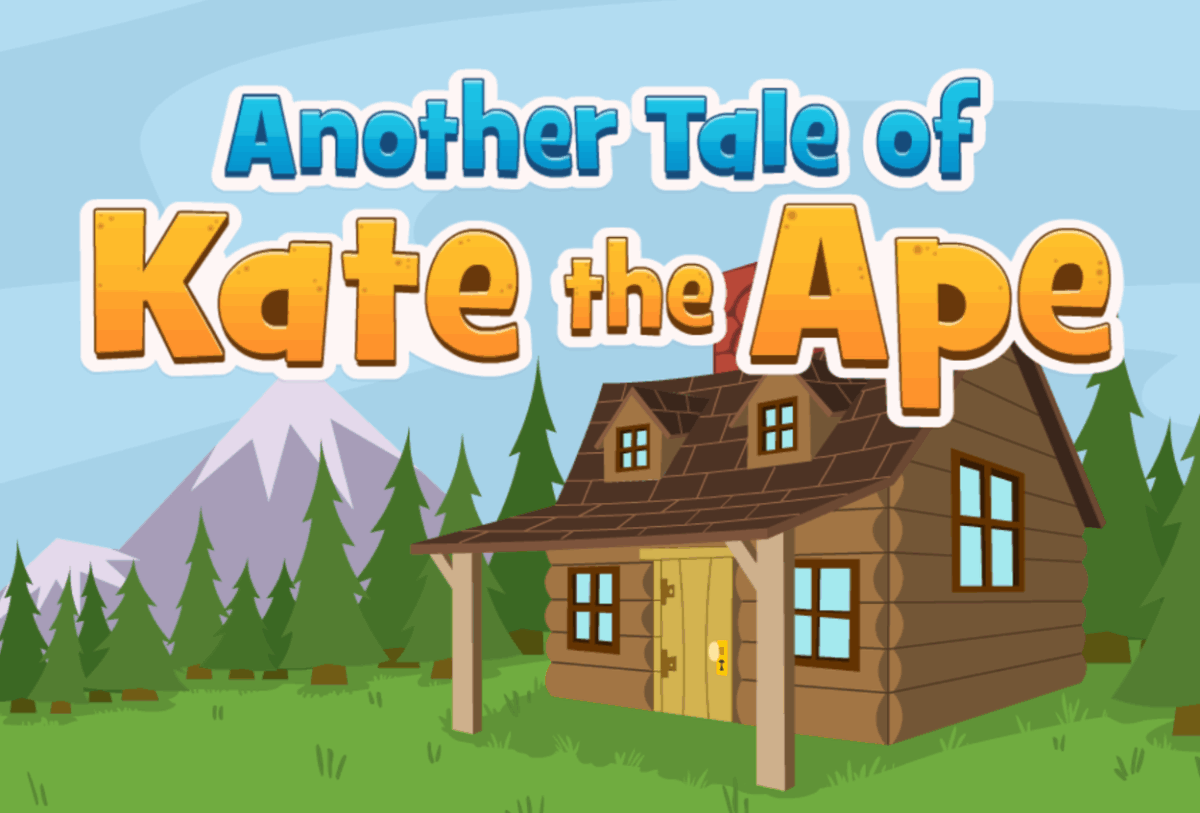
What is Decoding in Reading?
Learn how decoding shapes literacy skills, and get great tips on teaching your child how to do it.
As your child begins learning to read, they’ll start out by working with “decodable words.” But what exactly are decodable words, and why are they so important? Learn the details, plus get tips for teaching this key skill.
The Definition of Decoding in Reading
Picture a new reader pointing to a word, slowly sounding it out letter by letter. After a few false starts, they string all the sounds together and triumphantly say the word, proud of their accomplishment. This skill is known as “decoding,” and it’s an important part of the evidence-based science of reading approach that most schools and reading programs use today.
Decoding in Reading:
The ability to translate written words into speech, usually by using knowledge of letter-sound relationships, or phonics. It involves breaking down a written word into parts (i.e., sounds, syllables, roots, affixes) that can be spoken verbally.
Decoding in reading is essentially the act of sounding a word out. It involves using knowledge of letter-sound relationships and letter patterns to accurately pronounce written words. Decoding can also involve identifying word parts, like a root word or suffix, to determine the whole word. This understanding enables children to quickly identify familiar words and decipher unfamiliar ones.
Why is Decoding Important to Reading?

Along with language comprehension, decoding is a critical part of the act of reading. According to research from the National Institute for Literacy, “there is consistent data showing failure to develop basic decoding skills by first grade is predictive of lifelong poor literacy.”
Readers use decoding skills in reading fluency, vocabulary building, and reading comprehension. Even adults use decoding skills when they encounter unfamiliar words.
Decoding Helps Readers:
- Recognize words: Readers decode to recognize words accurately and independently, even if they’re unfamiliar. This helps them expand their word-recognition abilities.
- Improve comprehension: As children learn to efficiently decode words and eventually commit them to memory, they can then focus on understanding the text, making connections, and engaging in critical thinking as they read.
- Become more independent: Decoding skills help readers tackle unfamiliar words on their own, without relying as much on context, memorization, or getting help from an adult. This can lead to more independent reading.
- Develop vocabulary: When a reader deciphers a word, they align the sounds with the corresponding letters. Through repeated encounters with this process, the word eventually becomes ingrained in the reader’s memory.
- Grow fluency: Reading fluency is the ability to read with accuracy, speed, and expression. Decoding helps with reading fluency because it allows readers to recognize words quickly and effectively sound out unfamiliar words.
Tools for Decoding
When decoding, readers draw upon phonics and phonemic awareness skills. Phonics is the understanding of how letters and groups of letters, called graphemes, correspond to sounds, or phonemes, in words. A phoneme is the smallest unit of sound in a word. For example, the word sit is made up of three phonemes: /s/, /i/, and /t/, as is the word weight: /w/, /ae/, and /t/.
Phonemic awareness helps children recognize how sounds make up words. When children understand these relationships, they can translate printed words into spoken language—something they “hear” in their head and comprehend.
Phonics and Decoding
Children often are introduced to decoding in preschool or kindergarten, using the phonics rules they’ve learned in preschool and pre-K to guide their decoding efforts.
Phonics and decoding are closely linked because phonics instruction helps children learn the relationship between spoken language sounds (phonemes) and the letters and spellings that represent them. Decoding is the ability to read words accurately using this knowledge.
Phonemes and Decoding
Phonemes are important for decoding because they help readers understand how sounds make up words. Phonemic awareness is the ability to hear, identify, and manipulate phonemes in spoken words. When readers have phonemic awareness, they can isolate phonemes from complex words and blend sounds together to decode words.
Examples of Decodable Words
Decodable words are words that can be sounded out or blended using phonics rules and sounds that students have learned. They are usually short and simple, and they follow consistent phonetic patterns. Once a child knows all the applicable rules of phonics, regular words are fully decodable. Here are some examples:
CAT
This is known as a consonant-vowel-consonant (CVC) word. In this word, the consonants make the exact sounds a child expects. The vowel is in the middle of the word, with no “e” at the end to change the pronunciation, so it makes its short sound. Kids can simply sound out each letter, then run them together to decode the word cat.
BIKE
This word demonstrates the silent-e rule, which changes the preceding vowel to its long sound. New readers can note the “e” at the end and understand that it changes the vowel sound without making a sound itself.
CHANGE
Here’s a word that involves a lot of phonics skills to sound out, but it follows all the regular rules of spelling. To decode this word, students need to know consonant blends like “ch,” silent-e, and that the letter “e” following a “g” makes the “g” soft. By putting all those concepts together, they can sound this word out.
YESTERDAY
Even fairly long words can be fully decodable when you break them into smaller chunks like this:
YES / TER / DAY
- YES: This is a simple CVC word, where each consonant is pronounced as expected and the vowel in the middle makes its short sound.
- TER: The middle of the word follows the “r-controlled vowel” rule.
- DAY: “Y” can be a consonant or a vowel, but in this case it’s following the regular spelling rule of being part of a vowel team. In a vowel team, the first vowel makes its long sound.
Once a reader decodes each chunk of the word, they can string the whole word together, decoding the entire thing.
ROUGH
Some words aren’t decodable for early readers because they haven’t learned the appropriate phonics rule yet. Once students learn that -ough usually makes the sound “uff,” all they have to do is add the consonant sound at the beginning. It’s important to remember that what’s decodable for one child might not be for another, because they haven’t learned the rules of phonics for that particular word yet.
Decodable Words vs. Sight Words
Thanks to its mix of heritages, the English language is full of irregularly spelled words. Words that don’t follow regular spelling patterns may be partially non-decodable or completely non-decodable.
For example, take the word “listen.” The “t” in the middle of the word breaks regular phonics rules by being silent. However, a child can still break the word into two chunks and decode each half. Then, by saying the two halves together, they may be able to decipher the word. On the other hand, they also might need some help from a more experienced reader.

Some words break all the rules, as you’ll see in the following sentence. “Does their mother have great friends?” Every one of those words is spelled irregularly and breaks a phonics rule in at least one way. The best way to learn these is to note the irregular spellings, then memorize them.
Beginning in kindergarten, students learn what are known as “sight words,” or “high frequency words.” These are words that appear most frequently in books. Many (though not all) of these words are non-decodable, but they’re used frequently enough that experts have decided they’re worth memorizing when they cannot be sounded out. Learn more about sight words and how to teach them here.
#1 Downloaded Kids’ Education App in the U.S.
The ABCmouse app has so much to offer! You and your child will find 10,000+ games and activities designed by curriculum experts to nurture math and reading skills, along with an extensive digital library and so much more. Our research-back curriculum focuses on preschoolers through second graders.
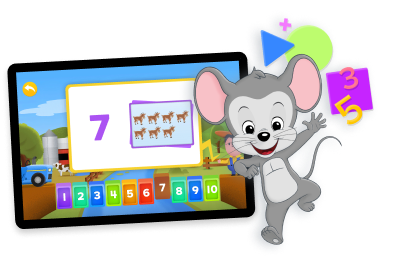

Then just $14.99 a month until canceled
Tips for Teaching Kids How to Decode Words
Decoding words is often called “sounding out,” and that’s a good way to describe it. Starting decoding practice early is helpful for young readers, as early exposure to decoding can set a strong foundation for reading success.
Here are several ways parents can help children grow their decoding skills. We recommend using our free printable lists of decodable words with many of these activities.
1. Master the letters and their sounds first.
Kids must be able to recognize the letters of the alphabet and know the sounds they make, a skill known as “letter-sound correspondence.”
To help develop this skill with your preschooler, work on teaching them the alphabet, helping them to identify the shape and name of each letter. When your child is ready, move on to identifying which letters are consonants and which are vowels.

Practice saying the sound each letter makes, including both long and short sounds for vowels. Students need to be completely comfortable with letter recognition and letter-sound correspondence to become fluent readers.
2. Begin with regular two-letter and CVC words.
Two-letter words are a good starting point, but make sure you choose those that are regularly spelled. For instance, “do” doesn’t follow regular phonics and spelling patterns. Many students learn it early on as a high-frequency word (see above), but it’s not truly decodable. See the list below for examples of decodable two-letter words.
After your child shows they’re comfortable with two-letter words, move on to consonant-vowel-consonant (CVC) words, being sure they follow regular spelling patterns. The list below can help you get started.

3. Say each sound separately, then blend.
To help students visualize the process, take letter magnets (or beads, cards, etc.) that spell out a word like HAT.

Place the letters far apart, and have your child make the right sound for each letter. Move the letters closer together and ask your child to say each sound a bit more quickly.
Continue this until they’ve run all the letters together and are able to read the whole world.
Printed books don’t allow children to separate all the letters. When reading, use a pointer stick or your finger to help your child identify and sound out each letter instead.
4. Focus on individual phonics rules.
There are many phonics rules governing the English language, so don’t overwhelm children by throwing too much at them at once. Avoid the urge to present new information before they’re ready for it. Instead, show them a new rule and talk about how it works. Then, practice decoding words using this new skill.
When children struggle with reading, it’s often because they haven’t fully mastered some of the rules of phonics. In this case, it’s often helpful to take a few steps back and return to words they can easily decode. Then go back and slowly add in a new rule, ensuring your child understands it before moving on.

5. Name the rules you see.
As kids start decoding longer words, ask them to explicitly name the phonics rules they see. Help them recognize common spelling patterns, so that big words don’t seem so hard.

Encourage them to break bigger words into smaller chunks, looking for patterns they already know. Things can feel easier to children when they’re taken one small step at a time.
6. Practice, practice, practice.
Set aside time every day for dedicated reading practice, as repeated practice can help kids grasp new concepts. Seek out a variety of strategies and activities that they’ll enjoy.
ABCmouse offers many reading games along with our award-winning, evidence-based reading program for preschool through second grade. Learn more about the program here, and check out these fun decoding games with your child:
Try These Fun Free to Play Decoding Games for Kids:
Click the picture to play the game!
7. Make It Fun
Decoding can be hard work for young readers, so it’s important to add some fun to their learning. Check out this list of 23 Hands-on Decoding Activities for Early Elementary Children.

Remember to go at your child’s pace and to try staying patient throughout the process.
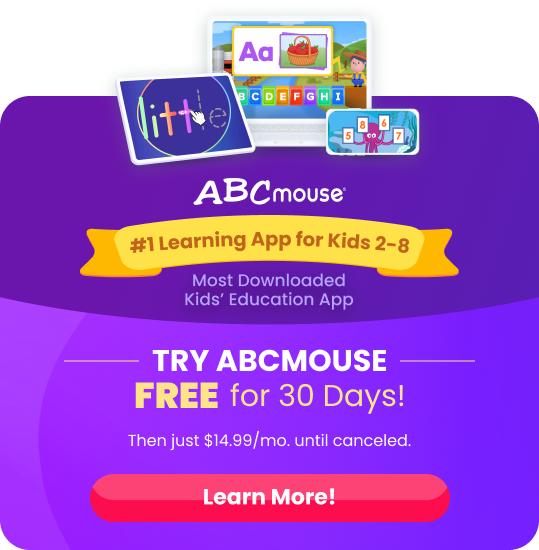
ABCmouse’s expert advice review process:
Our team of ABCmouse Curriculum Experts, made up of talented professionals in early childhood education and development, take a close look at educational content and learning claims. They put in the effort to make sure our information is accurate and current. We have a certified educator or another respected authority review the content, matching their expertise with the topic at hand. They’ll make sure the content is thorough and follows the latest research and educational guidelines. If they think we can make things even better, they’ll chat with our editorial team, and we’ll make those improvements right away. Only after a reviewer gives their thumbs-up does a piece of content get the official stamp of approval in the byline.




